2020 | General
#17Goals at 70th Berlinale
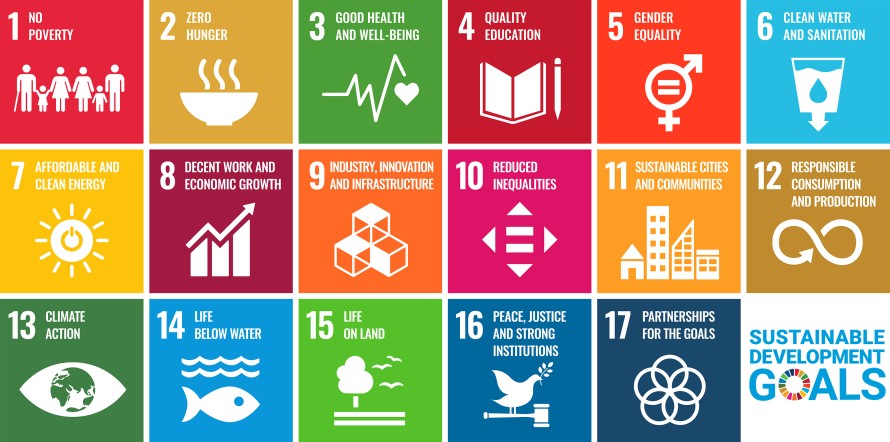
With the 70th Berlinale, the Berlin International Film Festival showed its commitment to the UN’s 17 Sustainable Development Goals. The festival was thus reaffirming its dedication to more sustainability and environmental protection.
With the support of “Engagement Global”, there was an exhibition dealing with the SDGs in the Potsdamer Platz Arkaden shopping centre during the 70th Berlinale. Numerous events were also hosted in cooperation with further partners at the Berlinale Social Bus in the Alte Potsdamer Straße. In addition, numerous public and industry events around the theme of sustainability were held by the festival sections, initiatives, and the European Film Market (EFM). Many of the films from the programme were related to the sustainability goals and provide insights into challenges of the future.
17 goals for sustainable development
The 17 goals were adopted in 2015 by the United Nations as part of the Agenda 2030. They put the focus on the big challenges of our time, such as hunger, poverty and peace as well as the consumption of resources and climate change. The realisation of these goals depends on everybody – governments, corporations, organisations and individuals.
The Berlinale highlights the special responsibility of the culture and film industry in achieving these goals. The festival’s dedication is evident in the examples of four goals: quality education (SDG 4), gender equality (SDG 5), industry, innovation, infrastructure (SDG 9), sustainable consumption, and production (SDG 12).
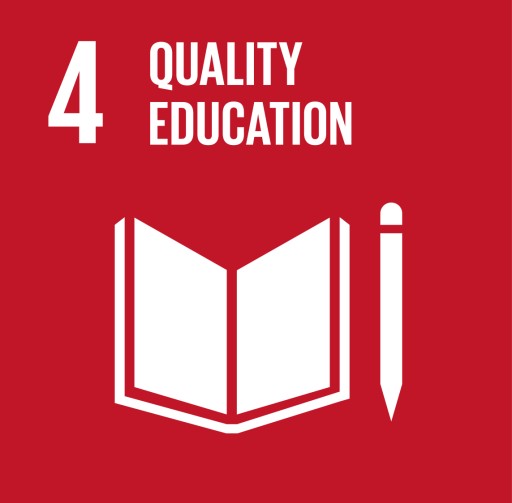
SDG 4: Cultural Education as a Key to the Future
The wide range of international films shown at the Berlinale have the potential to show links to a fair and sustainable future, to spark debate and inspire new ways of looking at and thinking about the world. Art and culture also have the ability to speak to people on an emotional level. These elements are the key to changes towards a sustainable future.
Since their inception in 1978, the section Generation (formerly Kinderfilmfest) has focused not only on challenging films for young viewers and open-minded adults, but also on cooperations with schools. Approximately 50 teachers of various school types and grade levels visit the festival every year with their classes and receive pedagogical support in integrating the films into their teaching. In 2017, the project was expanded to include classes with refugees.
True to the mottos “enable” and “empower”, Berlinale Talents provides support to filmmakers from across the globe. Every year, about 250 talents from over 80 countries have the opportunity to network amongst each other and with many experts and visitors in presentations, screenings, workshops, and project labs. The “Talents Footprints” initiative in turn supports them in creating sustainable projects that have a positive social and ecological impact. Berlinale Talents is crucial to cultural exchange and sustainable cooperation at the festival.
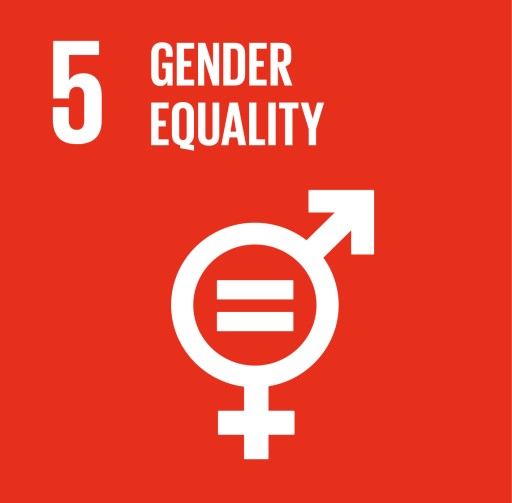
SDG 5: Commitment to Gender Equality
The Berlinale actively promotes gender equality and diversity. Since its establishment in 1951, the festival has been generating ideas and visions for a diverse world. This commitment is reflected in the film programmes of the sections and special presentations as well as the initiatives and special events.
The promotion of diversity includes the recognition of queer cinema with the annual TEDDY AWARD. The award emerged from the Panorama and was the first official queer award at a large festival worldwide. Since the 1980s, the Panorama section has played a pioneering role in the world of film festivals with its screening of gay and lesbian, transgender and feminist films. The programme is explicitly political with the goal of thinking beyond classic gender boundaries.
With regard to the festival’s own employees as well as the composition of the juries, gender parity is an important goal. In 2019/2020, seven sections, programmes and initiatives were headed by women, seven by men, and one position was filled gender-neutrally. The International Jury and International Short Film Jury were also assembled on a basis of parity with five women and five men.
Through in-depth analysis, the Berlinale has been able to achieve greater transparency of the gender distribution in the film programme since 2018. In 2020, 137 of the overall 340 films at the festival were directed by women, which is equivalent to 40 percent. By comparison, the percentage of female directors in German film productions is only 23 percent.
In 2019, the Berlinale signed the 5050 x 2020 Initiative, which advocates for justice and gender equality in the film industry and at film festivals. Since 2018, the Berlinale has also supported events organised by ProQuote Film and Women in Film and Television Germany (WIFT).
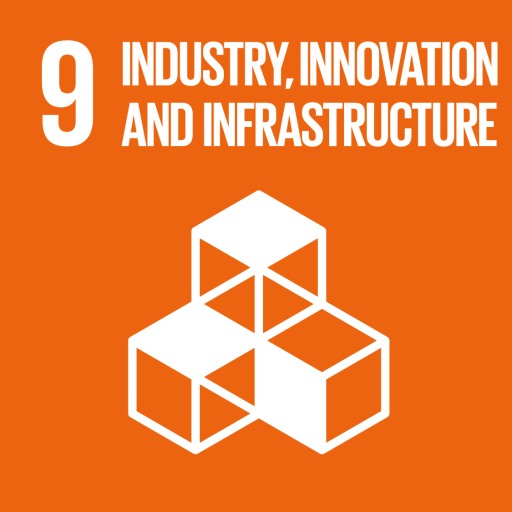
SDG 9: Impetus for the Film Industry
With its extensive film programme, the Berlinale inspires innovation and is a catalyst in the film industry. As an international platform for the industry, it brings together tens of thousands of stakeholders and paves the way for strong partnerships for a sustainable future.
The festival regularly organises discussions and workshops on sustainable film production. Their focus is on best-practice examples for green productions, sustainable modes of production and appropriate training options.
The World Cinema Fund (WCF) has been promoting cultural diversity and supporting the development of cinema in regions lacking in film infrastructure since 2004. The focus has been on Latin America, Africa, the Middle East and Central Asia. With its cooperation model, the WCF promotes international exchange and is committed to the development of world cinema. Central are artistically and content-sensitive projects that make the cultural complexity of the world visible.
In 2020, the European Film Market (EFM) adopted a manifesto for a sustainable organisation of the film industry event. With the Diversity & Inclusion Initiative, the EFM contributes to an increased visibility of the issue and the promotion of changes in the industry. In 2020, the EFM offered the Berlinale “Africa Hub” for the fourth time, a forum for filmmakers from Africa with numerous opportunities for networking and exchange. With the “DocSalon Toolbox programme”, the EFM supports international creative people from the documentary field by imparting know-how and professional advice. Numerous events on the topics of sustainability, well-being and diversity were also the focus of the 2020 “EFM Horizon” programme.
Technological innovations play an important role at the Berlinale. This year, the Berlinale Palast changed over to using LED lights. This reduced power consumption by approximately 6,500 kWh—the equivalent of two four-person households for an entire year. This concludes the festival’s reorientation of its venues to energy-efficient and climate-friendly LED lighting.
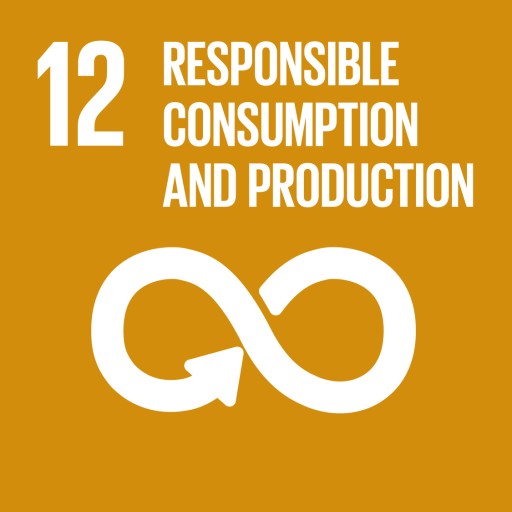
SDG 12: Reuse, reduce, recycle!
In order to minimise resource consumption, the Berlinale increasingly relies on environmentally friendly alternatives and a recycling economy. The festival’s offices, for example, have been using green electricity since 2013. Regular collection of old mobile phones among employees helps recycle reusable materials and rare-earth elements.
To promote conscious consumption, the 2020 motto was: "Bring your own cup!" Since 2018, the Berlinale has been forgoing disposable cups and this year has also stopped offering deposit cups. This saves several hundred kilograms of waste. The red carpet at the Berlinale likewise sets an example of how to combat throwaway culture: it is made from recycled fishing nets and other plastic waste, and can be reused for several years.
Old film banners are also reused. Some of them will be upcycled into trendy handbags in sheltered workshops. Overall, merchandise at the Berlinale increasingly adheres to the standards of fair labour conditions, sustainability and climate-friendly logistics. The catering for guests and employees is almost exclusively vegetarian and vegan.
In cooperation with Deutsche Bahn, the Berlinale offers a ticket that enables visitors to travel to the festival comfortably and in a climate-friendly way. In 2019, 442,000 kilometres were covered by these tickets—more than 11 times around the globe. All these measures reduce the festival’s ecological footprint.
Berlinale Films in the Context of the 17 Goals
The films in this selection are related through their content to one or more of the 17 Sustainable Development Goals. Most of them take up grievances like ecological destruction, poverty, war and conflicts or inhumane working conditions. Others encourage the commitment to a sustainable future. This partial selection was made by the Berlinale project team „#17goals at the Berlinale“ and the sustainability consultant Kerstin Pettenkofer in close advisory exchange with the Berlinale section heads.
Competition
Irradiés
Rithy Panh – Documentary form - 88' - French
Irradiés is a film about people who have survived the irradiation of war and is recommended to those who believe they are immune to it. An extreme, necessary film that penetrates the eye and heart with unyielding force.
SDG 16: Reducing or ending violence in all forms is a prerequisite for peace, justice and strong institutions for all.
Berlinale Special
Nomery
Oleg Sentsov - 104' - Ukrainian
Ten figures walk around in a circle. All they have is a number. The “Great Zero” monitors them. Based on a dystopian parable by Oleg Sentsov, this film was created between Kyiv and the Siberian penal colony where Sentsov spent five years as a political prisoner.
SDG 10 and 16: Restrictions on freedom of movement and expression as well as discrimination are the focus of the film and thus illustrate challenges such as inequalities and injustice.
Minamata
Andrew Levitas - 115’ - English, Japanese
Johnny Depp plays celebrated war photographer W. Eugene Smith in a real-life David versus Goliath story, pitting Smith against a powerful corporation responsible for poisoning with mercury the people of Minamata in Japan in 1971.
SDG 3, 8 and 15: The ruthlessness and greed of a company lead to long-term health damage for the population.
Berlinale Series
Stateless
Cate Blanchett, Elise McCredie, Tony Ayres, Emma, Jocelyn Moorhouse - 107' - English, German, Farsi
Escape, disappear, start over. Behind barbed wire in the Australian desert, the world comes together in a dramatic way for four very different people. Is home a place? Or a trauma? What if you’re not even in the position to dream about it?
SDG 10: The series deals with the topic of migration and native country and asks how to ensure responsible and decent mobility of people.
Encounters
Gunda
Victor Kossakovsky – Documentary form - 93' - without dialogue
Pigs, cows and chickens. Intimate portraits of living beings who end up dead on a plate every day. Director Victor Kossakovsky restores dignity to Gunda and company. A meditative intervention. A silent outcry that nonetheless celebrates life.
SDG 12 and 15: The film treats meat as food and mass product and thus refers to responsible consumption and the treatment of creatures of nature.
Berlinale Shorts
How to Disappear
Robin Klengel, Leonhard Müllner, Michael Stumpf – Documentary form - 21’ - English
How to Disappear is an anti-war film in the truest sense of the word. Searching for peace in the most unlikely of places – an online war game – it is a tribute to disobedience and desertion, in both the digital and physical-real worlds of warfare.
SDG 3 and 16: This short film campaigns for peace and justice as well as for the integrity of life with unusual means.
Union County
Adam Meeks - 14' - English
Cody manages to get his feet back on the ground by taking small steps, all humble and persistent. But his opiate past doesn’t want to forget him.
SDG 1, 3 and 10: In this short film, the protagonist fights for self-determination and for integrating into society.
Aletsch negative
Laurence Bonvin - Documentary form - 12‘ - Without dialogue
The Aletsch is the largest and longest glacier in the Alps – and it is melting. Images of this microcosm reflect the problems of the macrocosm Earth. Animations toy with the viewer’s perception and simulate the decline of perennial ice.
SDG 13: This film shows through impressive images the melting of the glaciers and thus the consequences of climate change for people and nature.
Gumnaam Din
Ekta Mittal - Documentary form - 28' - Hindi, Punjabi, Chhattisgarhi
They set off, looking for work in far-off places, but disappeared along the way. Inspired by Shiv Kumar Batalvi’s “birha” poetry, the film traces the longing on both sides: on the part of those who are missing, and those that wait for them to return
SDG 8, 10 and 16: The consequences of labor migration are discussed in this film from the perspective of those who stayed at home.
Playback. Ensayo de una despedida
Agustina Comedi - Documentary form - 14' - Spanish
“La Delpi”, the sole survivor of a group of transgender women and drag queens, remembers how lipstick, playback performances and improvised stage outfits galvanised the community and helped them in their struggle against AIDS and police violence.
SDG 5 and 10: The protagonists' struggle for gender equality and against arbitrary violence encourages to take action for the sustainable development goals.
Panorama
Semina il vento
Danilo Caputo - 91' - Italien
After years of absence, Nica returns to her native village. Her grandmother’s olive trees are threatened by a bug infestation. Against her father’s will, she fights to preserve the trees and maintain family traditions.
SDG 8 and 15: This film is an ode to nature, to sustainable agriculture and to the fight against industry and pollution.
O Reflexo do Lago
Fernando Segtowick - 79‘ - Portuguese
A black and white film about the people who live near one of the world’s largest hydroelectric plants in Amazonia. In the shadow of this environmentally destructive project, they eke out involuntarily meagre lives, without electricity or infrastructure.
SDG 7, 8 and 15: This film shows the interactions between large companies' pursuit of profit, the expansion of renewable energies and the associated negative effects on nature.
Welcome to Chechnya
David France - 107' - Russian, Chechen, English
The first documentary about the activists who join forces to save other people’s and their own lives in the face of the systematic persecution of the LGBTQI* community carried out by the Chechen authorities. A tour de force charged with resilience and courage.
SDG 5, 16 and 10: Political persecution based on personal freedoms and a related unequal treatment are discussed in this film.
I Dream of Singapore
Lei Yuan Bin - Documentary form - 78' - Bengali, English, Hokkien
An insightful documentary about migrant workers in Southeast Asia. After an accident in Singapore, Bangladeshi Feroz gets help from a human rights organisation. This hypermodern city-state is chewing up and spitting out poor migrants to power its boom.
SDG 1, 3 and 16: Poverty as the cause of labour migration in Asia is the focus of this film and impressively shows the consequences for the life and health of migrants.
Always Amber
Lia Hietala, Hannah Reinikainen - Documentary form - 76' - Swedish, Italian
Amber belongs to a queer generation which no longer wants to allow society to dictate their identity. The teenagers proudly inhabit a spectrum of fluid identities and master their first loves and losses.
SDG 5: The documentary deals with gender identity and the associated dissolution and softening of gender boundaries.
Exil
Visar Morina - 121' - German, Albanian
The signs that the pharmacologist Xhafer, who is originally from Kosovo, is being bullied at work are increasing – or is it just his imagination? Exile portrays an individual caught between integration and loss of identity.
SDG 10 and 16: Social exclusion based on provenance is the focus of this film and also takes a look at labour migration and inequality.
Forum
Generations
Lynne Siefert - 67' - English
Thirteen static shots of coal-fired power stations across the United States, seen in rural landscapes, urban settings, sun or cloud and at all times of year. Whatever the location or season, there’s always at least one chimney belching out fumes.
SDG 7, 8 and 9: The film shows the negative effects of fossil energy generation and shows the relevance of renewable energies as the key to sustainable development.
Grève ou crève
Jonathan Rescigno - 93' - French
In a former industrial town shaken by mining strikes in the 1990s, Rescigno follows its various inhabitants and their stories, as questions are raised about the labour struggle, solidarity and how these concepts have now shifted in the present day.
SDG 8, 9 and 10: The film focuses on the consequences of inhumane working conditions in the city from the nineties to the present day.
Frem
Viera Cákanyová - 73' - English
A view from high above onto nature and landscape morphs into an unsettling reflection on the limits of anthropocentric thinking at a time when nearly everything has already disappeared: documentary, poetic image research or science fiction?
SDG 13, 14 and 15: The film shows the effects of climate change on nature, landscapes, and animals below water and on land.
Lúa Vermella
Lois Patiño - 84' - Galician
Since Rubio was hit by a wave and the fisherman was pulled down into the depths, life in a coastal town in Galicia has stood strangely still. A fragmentary tale of witchcraft, drowned sailors and sea monsters, as much from the past as from the present.
SDG 13, 14 and 15: Destructive interventions of humans in nature are discussed in this film.
Kunst kommt aus dem Schnabel wie er gewachsen ist (Art Comes from the Beak the Way It Has Grown)
Sabine Herpich - 106' - German
At the Mosaik art studio in Berlin, artists with disabilities are able to produce their work unhindered. Sabine Herpich focusses on the artistic process and finds in so doing a form as precise as it is tender.
SDG 8 and 10: Working conditions for people with disabilities and the reduction of social inequalities are core topics of the work.
Luz nos trópicos
Paula Gaitán - 255' - Kuikuro, Portuguese, French, Russian, English
A film like a monument: Luz nos trópicos is a tribute to the rich greens of the Amazon and the forests of New England in winter, celebrating the indigenous peoples of both Americas and flowing as a film as freely as a winding river.
SDG 10, 14 and 15: Many indigenous peoples suffer from the destruction of their ecosystem and their home and are therefore victims of inequality.
Generation
Los lobos
Samuel Kishi Leopo - 95' - Spanish, English, Cantonese - recommendation: 9 years and up
Young brothers Max and Leo dream of going to Disneyland, but having just emigrated from Mexico to the USA they first have to settle in their new homeland. And they have to stick to the seven rules their mother has set down for them.
SDG 1, 10 and 16: This film deals with the social framework conditions for migrants and the dreams and wishes associated with migration.
En route
Marit Weerheijm - 10' - Dutch - recommendation: 8 years and up
Nine-year-old Inay has a brilliant idea how she and her brother can get their hands on a sweet pudding treat. This poignant story offers a youthful perspective on precarious living conditions.
SDG 1 and 10: This short film makes the connection between poverty and social inequality clear.
Perro
Lin Sternal - Documentary form - 79' - Spanish, Miskito, English - recommendation: 9 years and up
When the local school is closed down, Perro has to leave his grandmother behind and move to the city in this documentary film about a quiet boy whose indigenous home is threatened by the planned construction of the Nicaraguan Gran Canal.
SDG 8, 10 and 15: The central theme of the film is the overexploitation of nature by profit-oriented companies and the displacement of the indigenous population.
Meu nome é Bagdá
Caru Alves de Souza - 96' – Portuguese
With her hair short, trousers pulled up high and sweater tucked into the waistband, 17-year-old Baghdad from São Paulo spends her days skateboarding with her mates. But her world of swag and freedom is also tainted by sexism and violence.
SDG 5 and 10: The protagonist fights for equality with confidence. The film treats violence, sexism and discrimination - but also solidarity and rebellion.
The Earth is Blue as an Orange
Iryna Tsilyk - Documentary form - 74' - Russian, Ukrainian
A budding cinematographer, Myroslava lives in the middle of the Ukraine warzone with her mother and three siblings. In defiance of her difficult daily life, she sets out to make a film with her family, one that can offer them new perspectives.
SDG 10 and 16: With this courageous survival strategy in war, the film refers to the basic need for peace and non-violence.
Die Adern der Welt
Byambasuren Davaa - 96' - Mongolian - recommendation: 8 years and up'
For the Mongolian nomad boy Amra, the accidental death of his father represents a tragic end to a happy childhood. His grief proves to be a source of empowerment, fuelling Amra’s quest to honour his father’s memory and take on a powerful mining company.
SDG 8 and 15: The untouched nature of Mongolia and an intact cultural life are endangered in this film by global corporations.
Perspektive Deutsches Kino
Automotive
Jonas Heldt - Documentary form - 80' - German, Turkish, English, Hungarian
While Sedanur spends the whole night in Ingolstadt sorting car parts, headhunter Eva is looking for specialists in logistics automation. Two very different representatives of a generation in which, sooner or later, everyone will be replaceable.
SDG 8 and 9: The film takes a critical look at changing working environments in the digital and technological age and the loss of jobs.